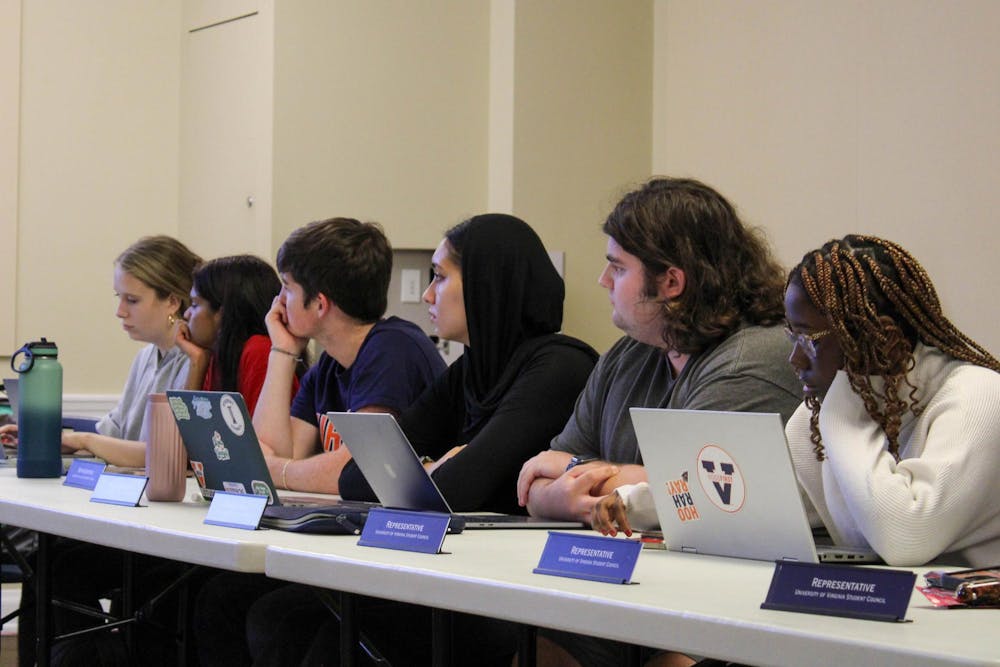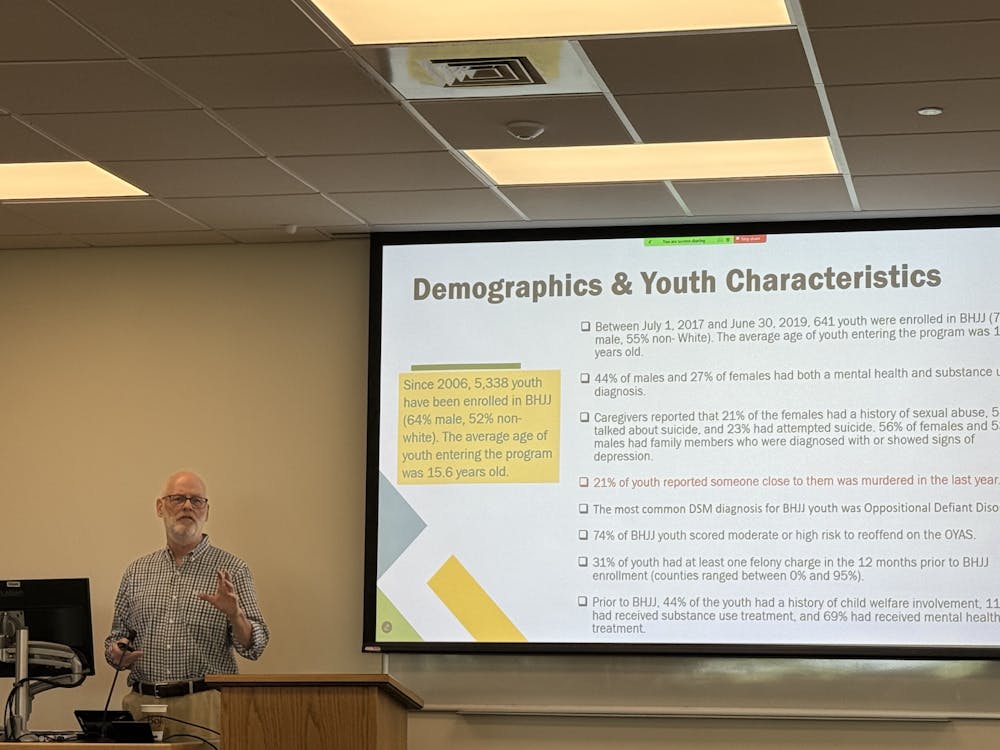Student Council passed a resolution calling to begin a conversation with Housing and Residence Life about how to improve administrative support for Resident Advisors. Additionally, Student Council heard a presentation from two members of the Organizations branch about the funding process for Contracted Independent Organizations.
Brian Ng, chair of external affairs and second-year College student, proposed legislation calling for Student Council to enter dialogue with Housing and Residence Life about how to support RAs’ mental health while on coverage during election nights. According to Ng, on the night of the presidential election, all RAs were required to stay on coverage — meaning that they would be on call and stay inside the dorm building all night.
Ng said that although it is important to ensure the safety of students, the mental health of RAs must also remain a high priority. Since RAs were required to stay on coverage, Ng said that they may have been unable to find a “safe space” to deal with the emotions that come with the election.
This resolution was inspired by Ng’s own discomfort while on coverage, he said, adding that other RAs faced similar issues.
“I’ve brought this issue up before, but I just feel like I've heard so many concerns from other RAs about the expectations that were put on us that night,” Ng said. “I really just wanted to bring visibility to it.”
As an RA himself, Jason Almas, chair pro tempore and fourth-year College student, also expressed discontent with how HRL handled RA coverage on election night.
“I also really had a hard time on election night, like most other people,” Almas said. “Having to stay up [until] 12 a.m., plus having my ringer on until morning, added anxiety and fear on top of everything that was happening on election night.”
Ng said that by starting the conversation with HRL through a Student Council resolution, the concerns of RAs will be backed by the voices of the collective student body. The resolution passed.
Student Council also welcomed members of its Organizations branch — which works to support the University’s student organizations, including granting CIO status and managing funding— to discuss the CIO funding process.
Fourth-year Commerce student Julia Bustamante and second-year College student Michael Mitchell explained the process, saying that compared to other universities who only do one to three funding application windows, Student Council has 11 application rounds in a calendar year, giving CIOs more chances to apply for funding. The committee uses an allocation rate system, meaning that CIOs who are selected to receive funding are given a certain percentage of the funding amount they applied for. This allows for small CIOs who ask for less money to have a greater portion of their requests met, while CIOs asking for larger amounts do not use up all of the funding pool.
According to Bustamante and Mitchell, there have been 554 funding requests this past semester, which is 100 more than the Fall 2023 semester saw. They said the committee is on track to see 1,015 requests by the end of the school year, setting a new record.
Bustamante and Mitchell said the Appropriations Committee has a funding pool of roughly $825,000, and that 295 unique CIOs have requested a total of $1.7 million this semester — another record. They said the average CIO request is $2,769.24.
There are multiple reasons for the record-setting number of requests, according to Bustamante, including that more CIOs are being approved and that CIOs are becoming more educated on how to request funds.
Almas asked if some CIOs are taking more money out of what is available than other CIOs. Bustamante said that while some CIOs request more money, every CIO has to say where that money is going to, how many events they are hosting and how many members the CIO has.
She used the Outdoors at U.Va. Club as an example, saying that because they are the largest CIO on Grounds and host many events, they request more money than many other CIOs. Although the club requests more in funding, Bustamante said that due to the allocation rate system, a smaller percentage of their request is fulfilled by the committee. The allocation rate system ensures that the funding pool won’t be used up by larger requests.
After discussing funding, Student Council passed a resolution creating four new CIOs — Latin Graduate Student Association, Women’s Club Flag Football, Nursing International Student Network at U.Va. and Flash at U.Va.
Additionally, Support and Access Services — a Student Council branch that aims to provide support services to students — has begun its textbook drive through its Textbook Access Office. Clay Dickerson, chief of the SAS branch and third-year College student, announced that the Textbook Access Office is currently accepting donations.
The donation bin is located outside the Student Activities Building and will be collecting donations through Dec. 17. The Textbook Access Office raises funds to subsidize textbook costs for low-income students, as well as provides free textbooks that may be loaned to students.
Looking back at the semester, Andreas Masiakos, chair of the representative body and fourth-year College student, reported that Student Council has considered a total of 23 resolutions — including resolutions recognizing new CIOs — this semester, 10 more than that of the Fall 2023 semester.
Tuesday’s meeting was the last Student Council general body meeting of the semester. Student Council will reconvene in the Spring 2025 semester.







